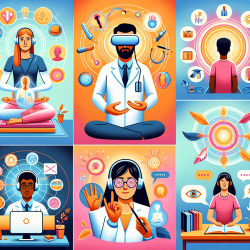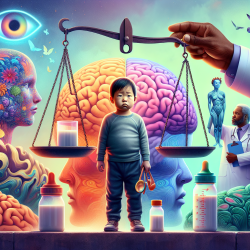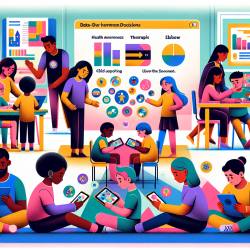In the ever-evolving landscape of education, the need for innovative solutions to support student well-being has never been more pressing. With the rise of digital technology, online therapy services like those provided by TinyEYE are transforming the way schools address the mental health and special education needs of their students. As government health regulators, your role in facilitating these advancements is crucial.
One of the most significant challenges faced by schools today is providing consistent and effective therapy services to students, particularly those with Individualized Education Programs (IEPs). Traditional in-person therapy sessions can be logistically challenging, costly, and time-consuming. Moreover, the shortage of qualified therapists in many regions exacerbates these issues, leaving many students without the support they need.
Online therapy, or teletherapy, offers a compelling solution to these challenges. By leveraging digital platforms, TinyEYE provides schools with access to a vast network of certified therapists who can deliver high-quality services remotely. This approach not only addresses the logistical and geographical barriers but also ensures that therapy sessions are flexible, accessible, and tailored to each student's unique needs.
Here are some key benefits of online therapy services in schools:
- Accessibility: Students in remote or underserved areas can receive the same level of care as those in urban centers.
- Consistency: Regular and uninterrupted therapy sessions can be maintained, even in cases of school closures or other disruptions.
- Cost-Effectiveness: Schools can reduce expenses related to travel, therapist recruitment, and facility usage.
- Customization: Therapy sessions can be tailored to meet the specific needs and goals outlined in each student's IEP.
- Data-Driven Insights: Digital platforms allow for the collection and analysis of data to monitor progress and adjust interventions as needed.
Despite the clear advantages, the adoption of online therapy in schools requires a supportive regulatory framework. As government health regulators, your endorsement and facilitation of these services can play a pivotal role in their successful implementation. By setting clear guidelines and standards for teletherapy, you can ensure that these services are delivered safely, ethically, and effectively.
Moreover, funding and resource allocation are critical components of this equation. Investing in the necessary technology infrastructure and training for school staff can significantly enhance the delivery of online therapy services. Additionally, providing financial support to schools for teletherapy programs can alleviate budget constraints and make these services more widely available.
It is also essential to consider the privacy and security of student data. Ensuring that online therapy platforms comply with relevant data protection regulations will safeguard sensitive information and build trust among students, parents, and educators.
In conclusion, the integration of online therapy services in schools represents a forward-thinking approach to addressing the mental health and special education needs of students. As government health regulators, your proactive involvement in supporting and regulating these services can drive significant positive outcomes. By taking the next step to endorse and facilitate online therapy, you will be contributing to a more inclusive, accessible, and effective educational environment for all students.
At TinyEYE, we are committed to partnering with schools and regulatory bodies to ensure that every student has the opportunity to thrive. Together, we can revolutionize student support and create a brighter future for the next generation.










